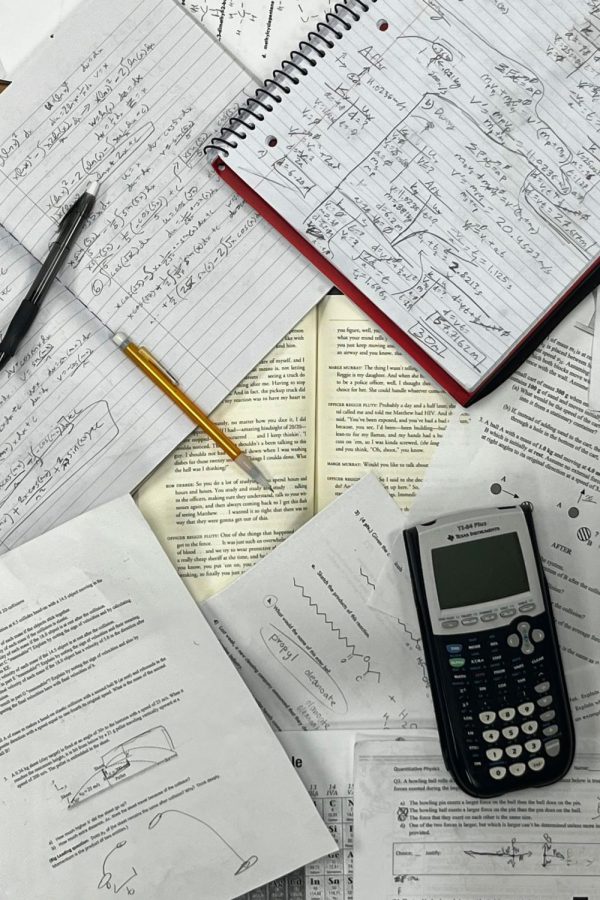The Final Countdown
How the new finals schedule addresses course inequity
Photo: Ethan Matsubayashi
An English book, obscured by Math, Science and Physics worksheets. In the past, UPrep has struggled with balancing STEM and humanities classes during finals week.
With finals week only one week away, students and teachers are still settling into the new schedule, which changed last year. The schedule change was implemented as students returned from online school, and was largely a push from non-science or math-related departments.
The new schedule features two hour blocks for Periods 1 and 3, and Periods 5 and 2 on Wednesday and Thursday. Friday will feature blocks for Periods 4 and 6, with a student breakfast from 7:45-8:45. English Department Chair Carrie Niebanck believes this schedule is a marked improvement, as it addressed some of the inequities in time allotment for different disciplines.
“It felt like math and science finals were more heavily weighted as if they were the ones that needed the time to give tests,” Niebanck said.
Director of Upper School Joel Sohn echoed Niebanck’s sentiment, acknowledging that the old schedule prioritized math and science classes.
“All the other subjects were de-emphasized, and I think that caused some concern about the equity in terms of subjects,” Sohn said.
Another concern that was raised about the previous schedule was that teachers were proctoring exams beyond the breadth of their knowledge. Teachers would often administer tests to multiple periods of the same class, and needed to rely on proctors.
“A math teacher is like, ‘I’m giving all my math exams here,’ but they can’t be in three to four places at once. So other people had to proctor those exams,” Sohn said. “So if a question came up from a kid, they’re asking a teacher that wasn’t there in the class, so they had to go wait and find that teacher.”
The new schedule has also implemented a “reading day,” which takes place on Tuesday of finals week this year. Reading days are a class-free day before finals, intended for students to meet with teachers. Niebanck believes that many don’t take advantage of this opportunity.
“There’s this worry in our department that the students who need the most support aren’t the ones who are going to use the reading day,” Niebanck said. “Because I’ve never worked in a school before where there’s a reading day, I would like more guidance as an adult around how to use it, what to offer and also how to coach students to use it.”
Your donation will support the student journalists of UPrep.

Ethan Matsubayashi is one of the print editors-in-chief of the Puma Press. He has been on staff for three years and is excited to explore innovative formats...

